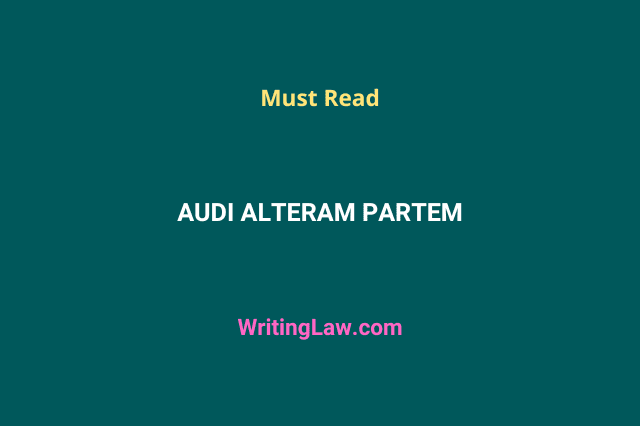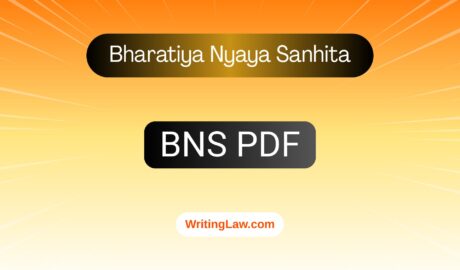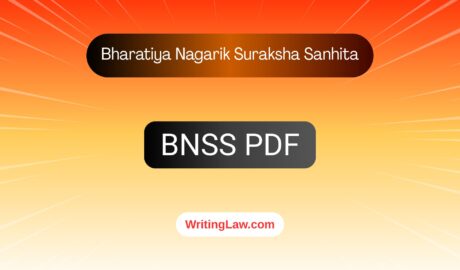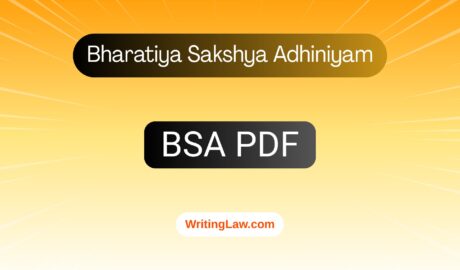
The Latin word “Audi Alteram Partem” means “hear the other side.” It is a crucial principle of procedural fairness or natural justice that provides a fair trial and defends people’s rights in court and administrative processes.
Maintaining procedural fairness and defending the rights and interests of those concerned in legal disputes require adherence to the “Audi Alteram Partem” notion.
This article examines the fundamental components of the “Audi Alteram Partem” principle and their importance in guaranteeing a fair and transparent hearing.
5 Elements of Audi Alteram Partem
These are the five fundamental components of Audi Alteram Partem:
1. Issuance of Notice
Before making a decision that may adversely affect someone’s rights, interests, or legitimate expectations, authorities must notify the affected parties in advance. The notice should inform the individuals of the nature of the case against them, the allegations made, and the opportunity to be heard.
Case Law: Punjab National Bank and Ors vs All India New Bank of India Employees: In this case, the notice had the charges against the person but did not contain the penalty that was imposed on the person. So, the court said that the notice was improper, so the passed order would be held invalid.
2. Right of Just and Fair Hearing
This principle ensures that the affected parties have the right to present their case, arguments, and evidence before a competent, impartial, and unbiased decision-maker. It includes the right to a full and fair opportunity to be heard in a clear and transparent manner.
Case Law: Harbans Lal And Ors. vs Financial Commissioner And Ors: In this case, it was held that a fair hearing is one of the essential parts of Audi Alteram Partum and that the authorities must ensure that parties can attend written and oral hearings.
3. Right to Produce Evidence
The affected parties have the right to produce evidence supporting their case during the hearing. This can include documents, witnesses, or any other relevant evidence that may help in their defence.
Case Law: Stafford vs Minister of Health: In this case, the court held that the evidence should be produced in the presence of both the parties, and if the evidence is not produced in the presence of the parties, then the authorities should make sure that the evidence is available to both the parties involved in the case.
4. Right to Cross-Examination
If either party presents witnesses, the affected parties have the right to cross-examine those witnesses. Cross-examination allows them to question the credibility and reliability of the testimony presented.
Case Law: Kanungo and Co. vs Collector of Customs and Ors: In this case, the police searched a person’s business property and seized some watches under the Sea Customs Act, 1878. During the proceedings, the individual who provided the information leading to the seizure was not permitted to be cross-examined. However, it was ruled that the principle of natural justice was not violated in cases of goods seized under the Sea Customs Act, as this law does not allow the concerned person to cross-examine the witness.
5. Right to Legal Representation
Individuals involved in the proceedings have the right to be represented by a legal counsel or lawyer. Legal representation is especially crucial when the issues involved are complex or when the rights and interests at stake are significant.
Case Law: Krishna Chandra Tandon vs the Union of India: In this case, the party was denied legal representation, and the court held that it violated the principle of natural justice.
Conclusion
In conclusion, a fundamental part of procedural fairness in judicial and administrative processes is the “Audi Alteram Partem” principle. Its basic components, including the issue of a notice, the right to a fair hearing, the production of evidence, cross-examination, and legal counsel, guarantee that people have a just chance to present their case and refute accusations.
Upholding this principle is crucial in maintaining the integrity of the legal system and safeguarding the rights and interests of all parties involved.
- What Is Misappropriation of Trade Secrets and Its Defences? - 15th May 2024
- 7 Important Types of Mediation Briefly Defined - 14th May 2024
- Whirlpool India vs Videocon Industries – Case Explained - 13th May 2024











